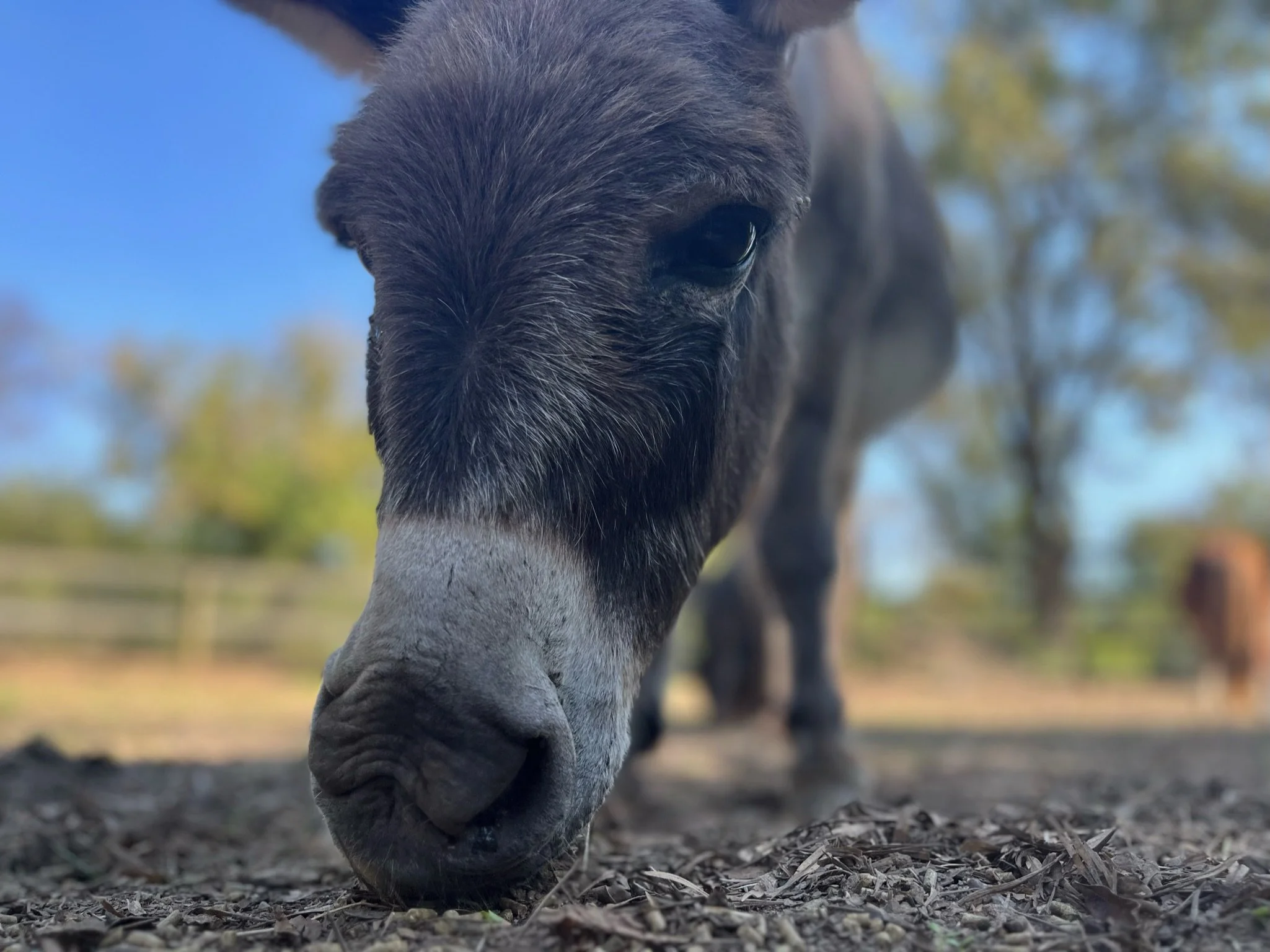Domestic Donkey
Scientific Name: Equus africanus asinus
Habitat: large pastures with ample room to roam and graze
Diet: Herbivore
Weight: 200 to 350 lbs.
Conservation Status: Domesticated
Range: Native to the Mediterranean islands of Sicily and Sardinia, now found globally
Lifespan: 25-35 Years
Size: up to 36 In. at the withers (shoulders)
Domestic Donkeys have short fur coats that cover their entire bodies, even their hooves. Donkeys can be found in grey, white, brown, black, tan, and even mixed colored coats. They have large teardrop-shaped eyes, large teardrop-shaped ears, and hooves. Most donkeys have lighter snouts, lighter underbellies, dark noses, and a jaw similar to horse breeds. Donkeys are unique because they have a smaller and shorter mane as well as a smaller build compared to horse breeds.
Donkeys live in herds, sometimes, in the wild as small as two individuals, depending on the availability of food. Donkeys are very social animals and need companions to be happy. This can be other donkeys, or even other species. Donkeys often form deep social bonds with one another, which provides emotional support, grooming, and protection for each other. Their need to protect their companions makes them excellent “guard” animals in a barnyard setting!
Donkeys are particularly intelligent and patient animals; they simply won't involve themselves in activities that may put them at risk of injury or death. Donkeys can help humans with multiple tasks, including protecting sheep/goats/cattle, being a foal or stable companion for other horses, handicapped riding, and the most common historical task, pulling large loads and carts to work mills and/or wells.
A male donkey is called a jack, and a female donkey is called a jennet or jenny. The offspring of two donkeys is called a foal. Donkeys can give birth once a year, typically in the spring to 1-3 foals.

